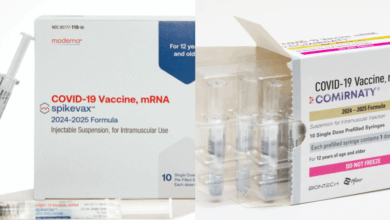LGBTQ+ physicians sue HHS, NIH over grant cuts

A group of physicians and researchers working on LGBTQ+ health recently took legal action against the National Institutes of Health (NIH) and the Department of Health and Human Services. The lawsuit, filed in the U.S. District Court for the District of Maryland, addresses the sweeping grant terminations that have impacted medical research on queer individuals. This move is in response to President Trump’s executive orders targeting transgender people and diversity initiatives.
The lawsuit, joined by over a dozen researchers and the nonprofit group GLMA: Health Professionals Advancing LGBTQ+ Equality, specifically names health secretary Robert F. Kennedy Jr. and NIH director Jay Bhattacharya as defendants. This legal action is the latest in a series of lawsuits against the federal health agency since the Trump administration began its overhaul and is the second lawsuit to focus on how research cuts have affected LGBTQ+ research. Another group of researchers, including Brittany Charlton of the Harvard T.H. Chan School’s LGBTQ Health Center of Excellence, filed a similar lawsuit in mid-May.
The plaintiffs argue that the government’s actions violate the Constitution’s Fifth Amendment, which guarantees equal protection on the basis of sex, sexual orientation, and gender identity, as well as the due process clause. These legal challenges are crucial in the context of ongoing discussions around discrimination against transgender individuals, as highlighted in the Supreme Court case U.S. v. Skrmetti.
Trump’s executive orders targeting transgender individuals have had significant repercussions on LGBTQ+ research. NIH has terminated over $800 million worth of research grants focused on LGBTQ+ people, claiming that the research no longer aligns with agency priorities. The lawsuit argues that these terminations have not only disrupted the lives of scientists and clinicians but also endangered the lives of queer individuals across the country.
The grant cancellations have affected a wide range of health topics among various queer populations. For example, Boston Medical Center physician-researcher Carl Streed had multiple grants terminated for research focused on the cardiovascular health of trans and gender diverse people and dementia in trans populations. Other plaintiffs received similar terminations for research on topics such as high HIV rates among LGBTQ+ people, alcohol use and dating violence among adolescents, and more.
The complaint seeks a thorough review of the agency guidance and research cuts, declaring them unlawful and vacating the cuts. Representatives for HHS and NIH have stated that the agencies do not comment on pending litigation. This legal battle underscores the importance of protecting LGBTQ+ research and ensuring that marginalized communities receive equitable access to healthcare resources and support. The field of artificial intelligence (AI) has been rapidly developing in recent years, with new advancements and applications being discovered on a regular basis. From self-driving cars to virtual assistants, AI technology is revolutionizing the way we live and work. One area in which AI is making a significant impact is healthcare.
AI has the potential to transform the healthcare industry in a number of ways. One of the most promising applications of AI in healthcare is in the field of medical imaging. AI algorithms can analyze medical images such as X-rays, MRIs, and CT scans with incredible speed and accuracy, helping doctors to diagnose conditions more quickly and accurately than ever before. This can lead to earlier detection of diseases and faster treatment, ultimately saving lives.
Another area in which AI is being used in healthcare is in the development of personalized treatment plans. By analyzing vast amounts of data on patients’ medical histories, genetic information, and treatment outcomes, AI algorithms can help doctors to tailor treatment plans to individual patients, increasing the likelihood of successful outcomes.
AI is also being used to improve the efficiency of healthcare systems. By automating routine tasks such as scheduling appointments, processing insurance claims, and managing electronic health records, AI technology can free up healthcare professionals to focus on providing better care to patients.
However, the use of AI in healthcare is not without its challenges. One major concern is the potential for bias in AI algorithms, which could lead to disparities in healthcare outcomes for different populations. It is crucial that AI systems are developed and trained using diverse and representative data sets to ensure fair and accurate results.
Another challenge is the need for regulations and ethical guidelines to govern the use of AI in healthcare. As AI technology becomes more integrated into medical practice, it is important to establish clear guidelines for how AI should be used, ensuring patient privacy and safety are protected.
Despite these challenges, the potential benefits of AI in healthcare are vast. By harnessing the power of AI technology, we can improve the accuracy and efficiency of medical diagnosis and treatment, leading to better outcomes for patients and a more sustainable healthcare system overall. As AI continues to advance, the future of healthcare looks brighter than ever before.





